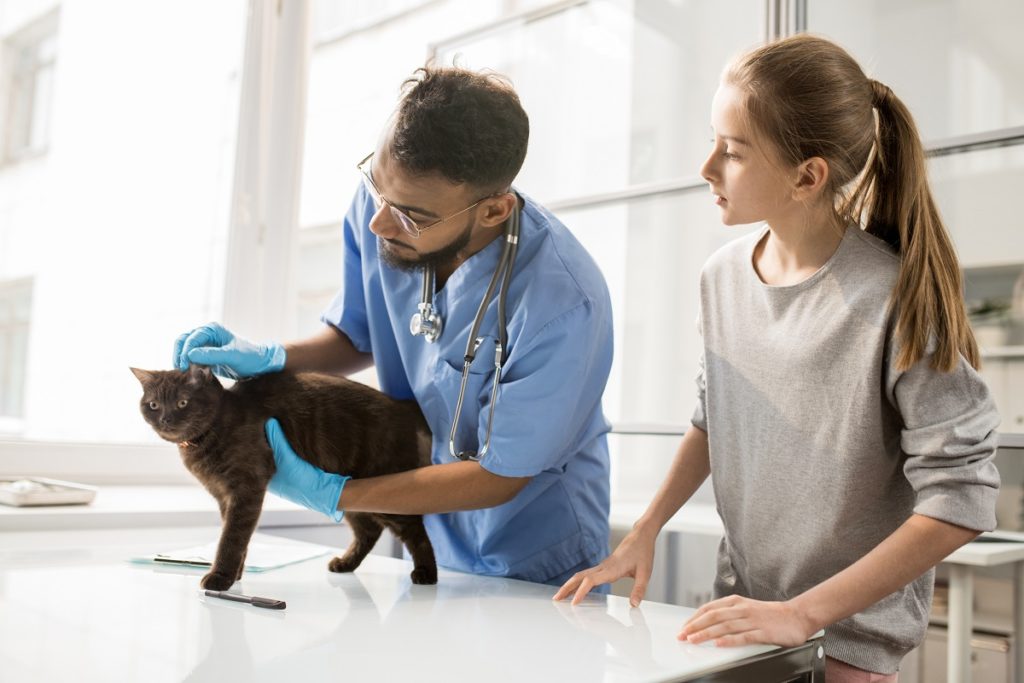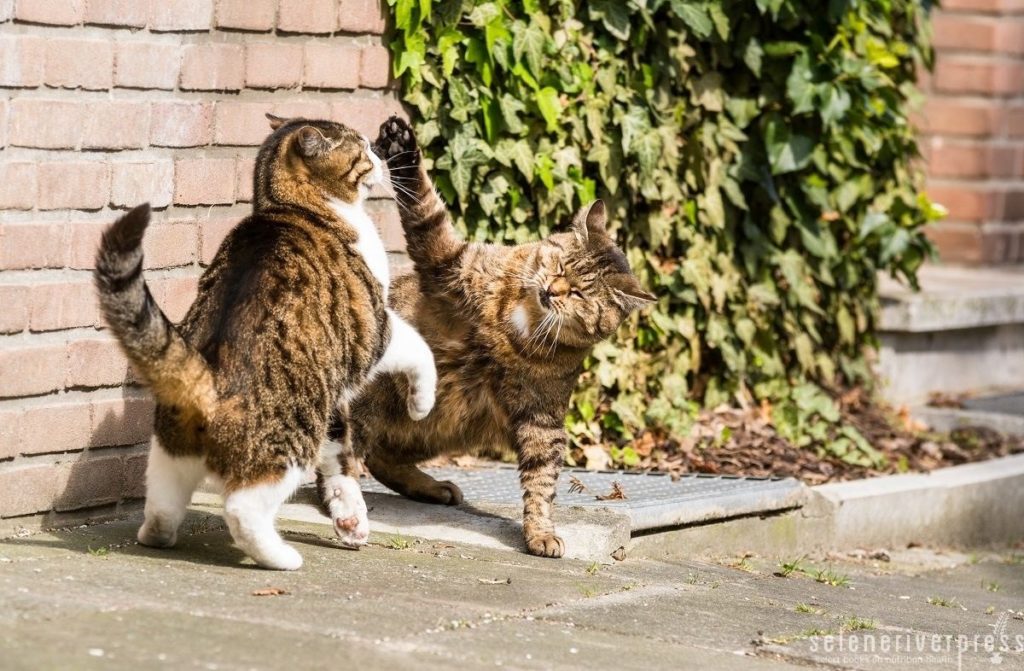It’s Sunday morning, and Fluffy jumps up on your lap. As you kick back to enjoy your coffee and stroke Fluffy’s back, you notice she feels warm, and she isn’t she purring like normal. You discover a bump on her backend, and she flinches when you touch it. Not another cat bite abscess!
If you only have one indoor cat, you may not have experienced this particular mayhem. An abscess is a painful localized wound that your cat can develop after being scratched by another cat or animal, or by getting punctured by an object. The most common form of abscess results from fighting with other cats, most often over territory or mates. In most cases, these are male cats.
The mouth and claws of cats are naturally teeming with bacteria. When bitten or scratched, their skin rapidly seals over and traps the bacteria inside. In this dark, warm, moist environment, the bacteria thrives. The end result is a pocket of pus and a nasty infection. In just a couple of days, the infected area will be painful and swollen. If left untreated, the infection will continue to grow, increase in pressure, and erode the overlying skin. An abscess is very painful, and cats don’t want to be touched in that area. Besides obvious signs such as localized swelling and oozing from the abscess site, you might notice a foul smell, bad breath, lack of appetite, lethargy, and fever. Many cats will also tend to lick the infected area.
As it can be difficult to eliminate the infection without proper medical attention, I recommend taking your cat into the vet if you discover an abscess. These are usually treated on an outpatient basis rather than in the hospital. The key is to remove the pocket of pus, which can be done surgically or by draining and flushing the site. If a foreign object caused the abscess, it is critical to fully remove it or the abscess will just return.
If the abscess is large or deep, surgery may be needed to debride the area and flush out as much purulent material as possible. A tube will then be inserted to allow for continued drainage. This can continue for a few days, and it can be messy to deal with. That’s why it’s always best to get the abscess treated right away, before surgery becomes necessary. With appropriate treatment, most abscesses should heal within five to seven days. The swelling associated with cellulitis may take longer. If you suspect the wound isn’t healing normally, you should take your kitty back to your veterinarian.
Since an abscess is full of bacteria, antibiotics are often indicated to resolve the infection. However, I encourage all pet owners to support their cat nutritionally as well. The best nutrition you can offer your cat is Feline Immune System Support from Standard Process (twice a day). The immune system is comprised of a range of tissues and cellular functions, including bone marrow, thymus, the small intestine, spleen, lymph tissue, and liver. Feline Immune System Support provides a combination of vitamins, minerals, tissue substrates, and phytochemicals that have an immunomodulatory effect. It contains nutrients that are known as functional foods and have been shown to contain a wide range of trace nutrients that benefit specific organs and tissues. This high-quality support will work well with the antibiotics to speed up healing and repair.
To prevent cat fights in the first place, you should spay or neuter your cat. Also try to keep them confined to the house, especially at night when most fights occur. Remember, early treatment can prevent abscess formation, so if your cat does get in a fight, take them to the veterinarian as soon as possible. They will examine the entire body, but the most common areas for a bite-wound abscess include the facial cheeks, legs, and base of the tail. The vet will clean the wound properly with antiseptic and recommend systemic cat antibiotics.
If you find a wound before it has abscessed and aren’t able to get to the veterinarian right away, clip the hair around the wound. Clean the area two to three times daily with sterile gauze and saline solution or warm water to remove any crusted discharge, and keep the edges clean. Leave the wound to dry. Do not apply over-the-counter antibiotic ointments since some cats have serious allergic reactions to neomycin or polymyxin. (This is another good reason to not attempt to treat the abscess at home without veterinary supervision. Infection can form extremely fast and cause your cat to become very sick.)
Another common mistake is to apply hydrogen peroxide directly to the open wound. This is not recommended and may cause further tissue damage. Never use alcohol on an abscess. Your cat will not appreciate your attempt to doctor his swollen, painful wound.
If your cat ventures out of the house, make sure you “arm” him with Feline Immune System Support for a strong immune system and Feline Whole Body Support for a complete multivitamin. We can’t always protect our felines from other cats, but we can provide them with a sound foundation of health to overcome any obstacles they encounter.
Images from iStock/Edith64 (main), shironosov (post).


